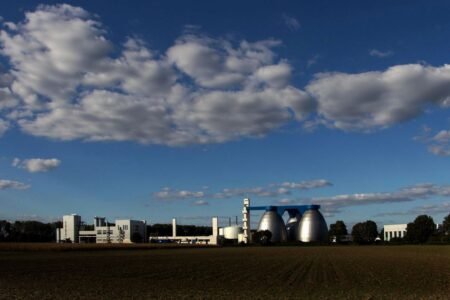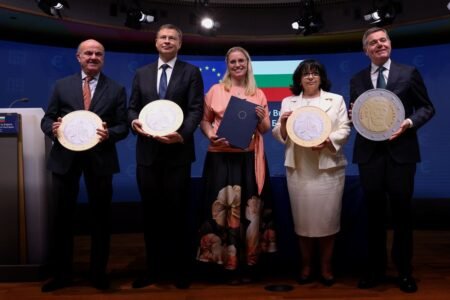The European Commission outlined a plan Tuesday to make Europe independent from Russian fossil fuels well before 2030, starting with gas, in light of Russia’s invasion of Ukraine.
The plan also responds to rising energy prices in Europe and to replenish gas stocks for next winter. With the increased energy prices for several months, uncertainty on supply is exacerbating the problem.
The EU’s ‘REPowerEU’ will seek to diversify gas supplies, speed up the roll-out of renewable gases and replace gas in heating and power generation. This, says the Commission, can reduce EU demand for Russian gas by two thirds before the end of the year.
“We must become independent from Russian oil, coal and gas,” said Commission president Ursula von der Leyen: “We need to act now to mitigate the impact of rising energy prices, diversify our gas supply for next winter and accelerate the clean energy transition. The quicker we switch to renewables and hydrogen, combined with more energy efficiency, the quicker we will be truly independent and master our energy system.”
The case for a rapid clean energy transition ‘has never been stronger and clearer’,, following the Russian invasion, says the Commission.
The EU imports 90% of its gas consumption, with Russia providing around 45% of those imports, in varying levels across Member States. Russia also accounts for around 25% of oil imports and 45% of coal imports.
The plan confirms the possibility of regulating prices in exceptional circumstances, and sets out how EU Member States can redistribute revenue from high energy sector profits and emissions trading to consumers. EU State Aid rules also offer Member States options to provide short-term support to companies affected by high energy prices, and help reduce their exposure to energy price volatility in the medium to long term.
The EU executive will also be consulting with Member States on the needs for, and scope of a new State aid Temporary Crisis Framework to grant aid to companies affected by the crisis, in particular those facing high energy costs.
It intends to present by April a legislative proposal requiring underground gas storage across the EU to be filled up to at least 90% of its capacity by 1 October each year. The proposal would entail the monitoring and enforcement of filling levels and build in solidarity arrangements between Member States. An investigation into the gas market in response to concerns about potential distortions of competition by operators, notably Gazprom, will continue.
To address the skyrocketing energy prices, the Commission will look into all possible options for emergency measures to limit the contagion effect of gas prices in electricity prices, such as temporary price limits. It will also assess options to optimise the electricity market design taking into account the final report of the EU Agency for the Cooperation of Energy Regulators (ACER) and other contributions on benefits and drawbacks of alternative pricing mechanisms to keep electricity affordable, without disrupting supply and further investment in the green transition.
Phasing out Europe’s dependence on fossil fuels from Russia can be done well before 2030, says the Commission. To do so, it will develop a ‘REPowerEU’ plan to increase the resilience of the EU-wide energy system based on two pillars: Diversifying gas supplies, via higher Liquefied Natural Gas (LNG) and pipeline imports from non-Russian suppliers, and larger volumes of biomethane and renewable hydrogen production and imports; and, reducing faster the use of fossil fuels in our homes, buildings, industry, and power system, by boosting energy efficiency, increasing renewables and electrification, and addressing infrastructure bottlenecks.
Full implementation of the Commission’s ‘Fit for 55’ proposals would reduce EU annual fossil gas consumption by 30%, equivalent to 100 billion cubic metres (bcm), by 2030. With the ‘REPowerEU’ plan, the EU could gradually remove at least 155 bcm of fossil gas use, which is equivalent to the volume imported from Russia in 2021, says the Commission, which adds that nearly two thirds of that reduction can be achieved within a year, so ending the EU’s overdependence on a single supplier.
Joint European action for more affordable, secure and sustainable energy - guide
Communication on REPowerEU: Joint European action for more affordable, secure and sustainable energy








